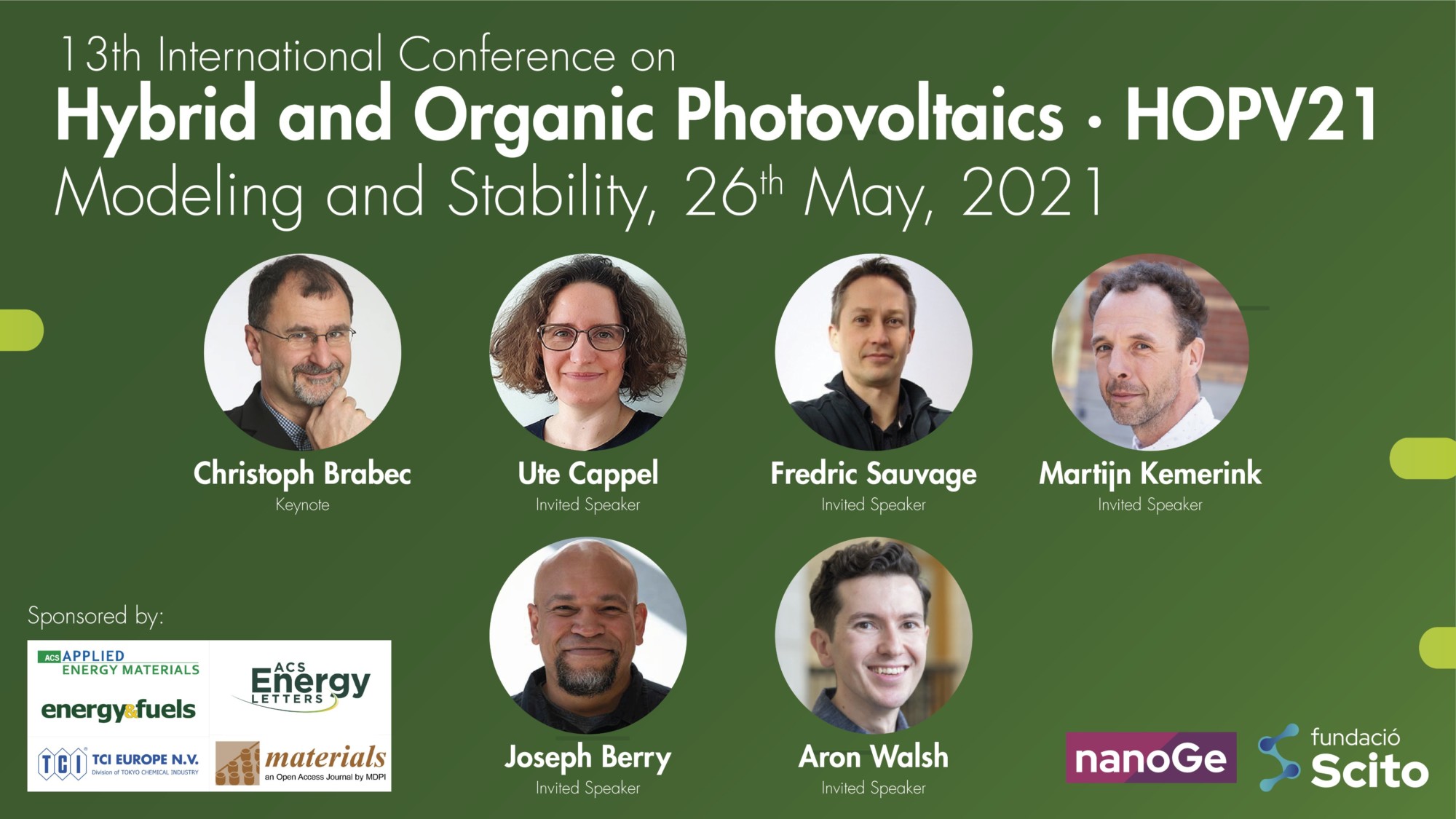Christoph Brabec is part of the HOPV21
nanoGe is a prestigious brand of successful science conferences covering cutting-edge materials topics like perovskite solar cells, photovoltaics, optoelectronics, solar fuel conversion, surface science, catalysis and two-dimensional materials.
The Hybrid and Organic Photovoltaics Conference (HOPV) is one of them. The main topics are the development, function and modeling of materials and devices for hybrid and organic solar cells. The HOPV conferences provide an excellent opportunity for scientists and engineers around the world to discuss the latest developments in hybrid and organic photovoltaics. The conference are led by world leading invited speakers covering a broad range of the latest scientific advances in morning plenary sessions. At this years 13th HOPV one of them is our Principle Investigator Prof. Dr. Christoph Brabec who is working in Project E – Lead-Free Perovskite Semiconductors with Tunable Bandgap for Energy Conversion.

His keynote talk holds the title Discovering hidden relations in organic semiconductor composites – a concept to accelerate the development of organic photovoltaics. He discusses concepts and strategies to speed-up the development of OPV technologies towards an earlier deployment on the market. Automated, robot-based research lines with shared interfaces to multi-objective machine learning based optimization routines are introduced as a powerful concept to accelerate the development of new materials towards markets. Despite the commonly accepted understanding that machine learning algorithms can accelerate optimization, he demonstrates that physical model-based AI is superior in discovering hidden relations. He also demonstrates that in specific cases it is becoming possible to predict efficiency or even stability of organic solar cells based on a simple absorption measurement.

